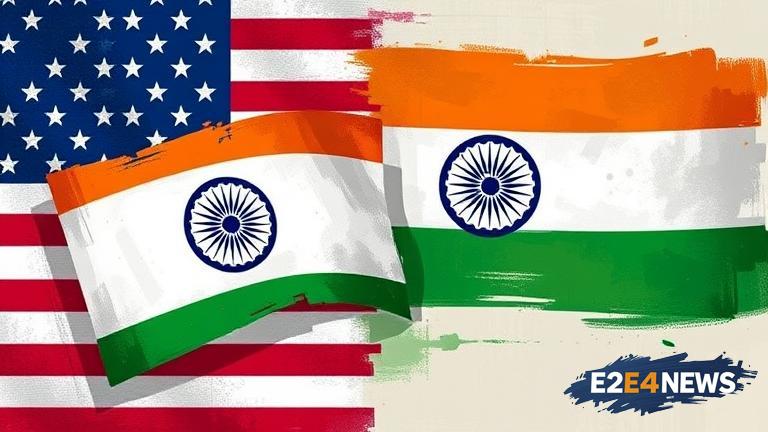The United States has slapped higher duties on $37 billion worth of Indian goods, sending shockwaves through the global trade community. This move is expected to have far-reaching consequences for both countries, with India’s exports to the US likely to be severely impacted. The higher duties, which range from 10% to 25%, will be imposed on a wide range of Indian goods, including textiles, chemicals, and pharmaceuticals. The US has cited India’s alleged failure to provide adequate protection for American intellectual property rights as the reason for the increased duties. India has responded by saying that it will take all necessary steps to protect its trade interests. The trade tensions between the US and India have been simmering for some time, with the US accusing India of unfair trade practices. The US has also been critical of India’s decision to impose higher tariffs on American goods, including agricultural products and electronics. The Indian government has argued that the tariffs are necessary to protect its domestic industries. The higher duties imposed by the US are likely to have a significant impact on India’s economy, with the country’s exports to the US expected to decline sharply. The Indian rupee has already weakened against the US dollar, making it more expensive for Indian companies to import goods from the US. The trade tensions between the US and India are also likely to have a ripple effect on the global economy, with other countries watching the situation closely. The US is one of India’s largest trading partners, and the higher duties are likely to have a significant impact on the country’s trade deficit. India’s trade deficit with the US has been widening in recent years, and the higher duties are likely to make it even more difficult for the country to reduce its trade deficit. The Indian government has said that it will take all necessary steps to support its exporters, including providing financial assistance and other incentives. The US has also said that it is willing to negotiate with India to resolve the trade tensions. However, the negotiations are likely to be complex and time-consuming, and it may take several months or even years to resolve the issue. In the meantime, Indian companies are likely to face significant challenges in exporting their goods to the US. The higher duties are also likely to have a negative impact on American companies that import goods from India. The trade tensions between the US and India are a major concern for the global trade community, and it is hoped that the two countries will be able to resolve their differences soon. The World Trade Organization (WTO) has also been watching the situation closely, and it is likely to play a key role in resolving the trade tensions. The WTO has rules in place to prevent countries from imposing unfair trade practices, and it is likely to take action if the US and India are found to be in violation of these rules. The trade tensions between the US and India are a reminder of the complexities and challenges of global trade. Despite the challenges, global trade has been a key driver of economic growth and development, and it is hoped that the US and India will be able to resolve their differences and continue to trade with each other. The US and India have a long history of trade relations, and it is hoped that they will be able to build on this history to resolve the current trade tensions. The trade tensions between the US and India are also a reminder of the importance of trade agreements and the need for countries to work together to resolve trade disputes. The US and India have a number of trade agreements in place, including the US-India Trade Policy Forum, which provides a framework for the two countries to discuss trade issues and resolve disputes.
